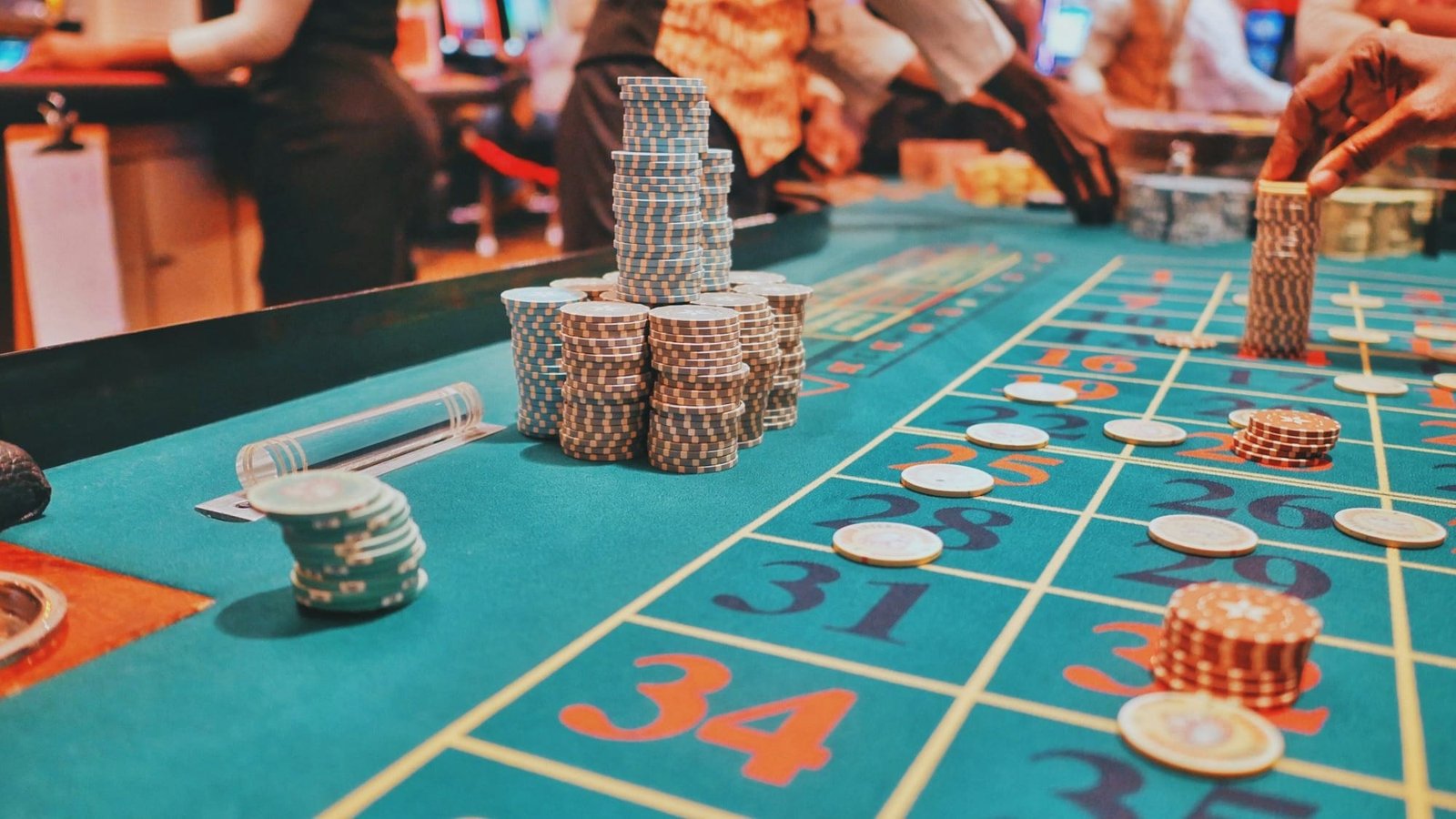How Did Poker Get So Hard? Unveiling the Challenges
Poker got hard due to increased accessibility and the rise of online platforms. Players now study advanced strategies and

Poker got hard due to increased accessibility and the rise of online platforms. Players now study advanced strategies and analytics.
Poker’s evolution into a complex game can be traced back to several key factors. The internet made poker accessible to a global audience, leading to an influx of new, skilled players. Online platforms offer countless opportunities to practice, play, and learn from others.
Advanced software and analytics tools have emerged, allowing players to study game theories and probabilities in-depth. Televised poker tournaments and celebrity endorsements have popularized the game, inspiring more people to take it seriously. With so many resources available, players have become more strategic and competitive, raising the overall difficulty of the game.
Evolution Of Poker
The game of poker has changed a lot over the years. From its early days to today’s online platforms, poker has evolved. Let’s explore this fascinating journey.
Historical Roots
Poker’s roots trace back to the early 19th century. It began in the United States. Originally, it was played with just 20 cards. The game then expanded to a 52-card deck. This made the game more complex and exciting.
During the Civil War, soldiers played poker to pass time. It spread across the country rapidly. Riverboats on the Mississippi River became popular poker spots. The game’s popularity grew, and different versions emerged.
Modern Variations
Today, poker comes in many variations. The most popular is Texas Hold’em. This version gained fame through TV shows and tournaments.
Another popular variation is Omaha. In this game, players receive four cards instead of two. Stud and Draw poker are other common types. Each variation has its own rules and strategies.
Online poker has also transformed the game. Players can now compete from anywhere in the world. This has increased the competition and skill level. Poker has become a global phenomenon.
Technological Influence
Poker has become more challenging over the years. A significant factor is the technological influence. Technology has transformed the game. Let’s explore how.
Online Platforms
Online poker platforms revolutionized the game. They brought poker to millions. Players can now play anytime, anywhere. This accessibility increased the number of skilled players.
- 24/7 availability
- Global player pool
- Easy to join and play
Online platforms offer various game types and stakes. This variety helps players improve faster. They can play many hands in a short time. More practice means more skills.
Data Analytics
Data analytics changed how players study poker. Advanced tools analyze hand histories. Players can identify mistakes and improve strategies.
| Tool | Function |
|---|---|
| Tracking Software | Records hand history |
| Equity Calculators | Calculates hand strength |
| Solvers | Finds optimal plays |
Using these tools, players can study and learn quickly. They can spot patterns and avoid errors. This scientific approach makes the game tougher.
Rise Of Professional Players
In the past, poker was a casual game played at home or in casinos. But over the years, it has transformed. The rise of professional players has changed the game completely. These players have taken poker to new heights. They have turned it into a serious, competitive sport.
Training Methods
Professional players use advanced training methods to improve their skills. They study game theory, watch videos, and analyze hands. Many use software to simulate games and practice different scenarios.
| Training Method | Description |
|---|---|
| Game Theory | Studying optimal play strategies. |
| Video Analysis | Watching and learning from recorded games. |
| Hand Analysis | Reviewing past hands to spot mistakes. |
| Software Simulations | Practicing with computer programs. |
Global Competitions
The rise of global competitions has also made poker harder. Players from all over the world now compete in major tournaments. These events attract the best players. The level of play is extremely high.
- World Series of Poker (WSOP): The most famous poker tournament.
- European Poker Tour (EPT): Top players from Europe compete here.
- Asia Pacific Poker Tour (APPT): Features the best from Asia and the Pacific.
These tournaments offer huge prizes. They also provide a platform for players to showcase their skills. Winning at these events requires intense focus and practice.
Psychological Elements
Poker is not just about the cards you hold. It’s also about the mind games you play. The psychological elements of poker are key to winning. Let’s dive into two crucial aspects: Bluffing Tactics and Mental Resilience.
Bluffing T Tactics
Bluffing is an art in poker. It involves making others believe your hand is stronger or weaker than it actually is. Good players use bluffing tactics to deceive opponents. Here are some common bluffing tactics:
- Stone-cold bluff: Betting with a weak hand, hoping others fold.
- Semi-bluff: Betting with a hand that could improve.
- Continuation bet: Betting after a pre-flop raise, regardless of the hand.
Mastering bluffing requires practice and sharp observation. Watch your opponents’ reactions closely. A successful bluff can turn the game in your favor.
Mental Resilience
Mental resilience is crucial in poker. The game can be stressful and exhausting. Staying calm under pressure is a valuable skill. Here are some tips to build mental resilience:
- Stay focused: Avoid distractions and keep your mind on the game.
- Control emotions: Don’t let wins or losses affect your mood.
- Practice patience: Wait for the right moment to make your move.
Building mental resilience takes time. Regular practice and self-discipline can help. Strong mental resilience helps you make better decisions and stay in control.
| Bluffing Tactics | Mental Resilience |
|---|---|
| Stone-cold bluff | Stay focused |
| Semi-bluff | Control emotions |
| Continuation bet | Practice patience |
Economic Factors
Poker has become a tough game. One key reason is economic factors. Let’s explore how prize pool growth and sponsorship deals have influenced this change.
Prize Pool Growth
The size of poker prize pools has increased dramatically. This attracts more skilled players. They see bigger rewards and compete fiercely. Higher stakes mean tougher competition. Everyone wants to win big money.
Consider the World Series of Poker (WSOP). The main event’s prize pool has grown significantly. Here’s a look:
| Year | Prize Pool |
|---|---|
| 2000 | $1.5 million |
| 2010 | $68 million |
| 2020 | $80 million |
Such large prize pools draw in the best players. They study hard and practice more. This makes poker very hard to win.
Sponsorship Deals
Sponsorship deals have also changed poker. Companies sponsor top players. This provides them with steady income. They can focus solely on improving their game. This raises the skill level across the board.
Here are some benefits of sponsorship deals:
- Financial support for players
- Access to advanced training resources
- Opportunities to play in more tournaments
Sponsored players often receive coaching. They get tips from the best minds in poker. This makes them even tougher opponents. Non-sponsored players have to work much harder to keep up.
Sponsorship deals also help increase the visibility of poker. More people watch, learn, and join the game. This adds to the pool of skilled players, making poker even more challenging.

Frequently Asked Questions
What Makes Poker Hard?
Poker is hard due to its complex strategies, psychological elements, and constant need for skill improvement.
Has Poker Gotten Harder?
Yes, poker has gotten harder. More players study strategy and use advanced tools. Competition is tougher.
Has Anyone Gotten Rich From Poker?
Yes, many people have become rich from poker. Famous players include Phil Ivey, Daniel Negreanu, and Doyle Brunson.
Is Poker Really A Game Of Skill?
Yes, poker is a game of skill. Players use strategy, psychology, and mathematics to make decisions. While luck influences short-term results, skill prevails over time.
Conclusion
Poker has evolved into a complex game requiring skill, strategy, and adaptability. Players must continuously learn and adapt. The game’s increasing difficulty is a testament to its growing popularity and competitive nature. Stay dedicated, keep practicing, and embrace the challenge.
Poker’s complexity is what makes it so rewarding and exciting.













